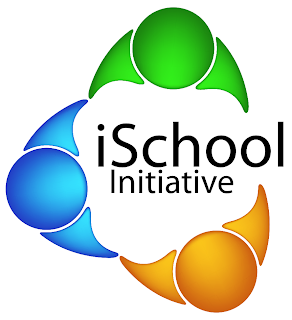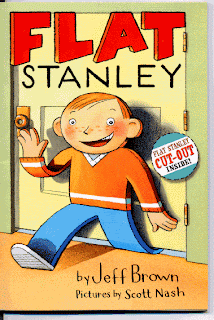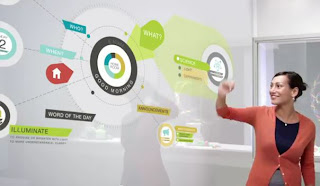Thursday, September 27, 2012
Wednesday, September 26, 2012
Blog Post # 5
The iSchool initiative
This video done by Travis Allen was very interesting and exciting. The iSchool could change so many things about education, and help in so many ways. It would be useful for students to communicate better with teachers and give them a more hands on learning experience. This would be better for special needs students, because fighting to get them technology to learn wouldn't be an issue. Every student would have it. Also Travis pointed out in the video this could benefit the world around us. No paper in school ever again? That's insane to think of how many trees that could save! I think it's also a good idea, because with the iSchool students would be limited to only things related to school. They wouldn't be on Facebook rather than doing their assignment.
Travis Allen's ZeitgeistYoungMinds
This second video by Travis is a continuum of his previous video. After making his first video at seventeen this video was done while he was twenty years old, and he has made so much progress with his idea since. He is now a college student, and he travels the country with a team of twenty-five students trying to inspire schools to embrace mobile learning. His iSchool initiative has received international exposure. His idea to rebuild the way we teach to match the world around us makes complete sense. Why not teach kids with the things they will be using once they have jobs? Most jobs I know of use computers and digital devices constantly everyday.
Eric Whitacre's Virtual Choir
I have to say this is awesome. All of the people in this video have never met before, yet they were able to perform this perfectly. Something like this you may say is impossible until you actually see it. I guess with the right person and determination anything is possible. This use of the internet shows how much we can do with technology. This shows there are really no limits.
Teaching 21st Century Students
According to Kevin Roberts if all teachers do is teach facts then our role as an educator is obsolete. Students can retrieve facts from anywhere today with the use of the internet. He believes we should teach students skills in order to learn how to use the internet effectively. We need our students to be engaged to learn, and he believes using technology can do this.It's our job as educators to try to incorporate this into the way we teach. I do agree with this. I think it is important to engage kids more, and in order to do that, using technology would be much easier than pencil and paper. I know this from personal experience. I saw firsthand how the use of Smart Boards really gets the students attention and excites them. As an educator I wouldn't say this wouldn't really affect me, because I'm not a educator yet so I have nothing to change. However, if I learn these things before I start teaching I'll be better prepared to incorporate technology into the way I teach.
Flipping the classroom is a great idea. I have family members who work in education, and this is one of the main issues. Not having enough time after lecturing to give each student what they need to achieve. This idea of sending lectures out before class is awesome. This gives the teacher so much more time to make sure each student understands the topic. I'd definitely like to use this in the future, because this would enable me to make sure more students actually learn.
Friday, September 21, 2012
C4T #1
I commented on Joe Dale's blog. I found that his blog has a lot of great information. The first post I commented on was Introducing the aPLaNet Project. This was to encourage Language teachers who do not normally use social media to do so in their classroom. This is a great opportunity for Language teachers to expand the way they teach, and learn new techniques. I especially found it interesting, because I intend to be a Language Arts teacher. My comment basically thanked him for this information, and that I appreciated it since I intended to be a Language teacher. I was honestly a little intimidated by Mr. Dale so I didn't want to say too much, and not sound like I knew what I was talking about!
The second time I commented on his post Dr. Lid King on Lingu@net Worldwide. This described a project that enabled people learning new languages to interact with each other from around the world. This is what I commented, "This is really great information for anyone interested in learning a new language. It's also a super idea for those who have been learning a language, and can now interact with others who are doing the same thing." Mr. Dale's posts are very informative and fun to read. It's great to know all the different capabilities we have to interact with each other through technology.
The second time I commented on his post Dr. Lid King on Lingu@net Worldwide. This described a project that enabled people learning new languages to interact with each other from around the world. This is what I commented, "This is really great information for anyone interested in learning a new language. It's also a super idea for those who have been learning a language, and can now interact with others who are doing the same thing." Mr. Dale's posts are very informative and fun to read. It's great to know all the different capabilities we have to interact with each other through technology.
Blog Post # 4
Langwitches 1st Graders Create Their Own Read-Along Audiobook
This was a really neat idea. The teacher took some students out of the classroom to record their voices, while another teacher kept reading to the students in the classroom. They were recording the book they were reading. I like this, because instead of calling on them to read in class this let's them play with the way they read aloud. They don't have to sound monotone, and if they do they can re-record until they're happy with how they sounded. When you listen to the recording you can tell the student's are excited about reading their part. The student's are learning to use different technology, and are also much more engaged in the activity. I would absolutely love to do something like this in the future. The step's they took while doing this are also there if someone is interested. When we do our podcast I will remember to have fun with the way I record my part.
Langwitches Flat Stanley Podcast
Yet again this was another really cool idea. I'm really starting to like Langwitches blog. This time she had her students read "Flat Stanley." Then she had them make their own Flat Stanleys that would be "sent" around the world to wherever they chose, and they would tell about their adventure in the podcast. This enabled them to learn about a place in depth and also have fun doing it. For example, one of the locations was Israel. Well, the student needed to know what it was like in order to tell about it, so they had to research it. I think this is a great way to incorporate all types of learning, and this shows there are no limits to the ideas you can come up with.
Joe Dale Podcasting in the Classroom
Starting off Doug Saunders say's that podcasting is an effective way to interact with students outside of the traditional classroom. This is important to do, because keeping students attention can be a challenge. Especially in today's classrooms. Saunders also say's that podcasting allows for creativity and innovation. This generation of students has never known a world without technology, so why not incorporate it into their learning? Podcast allow a more in-depth learning experience, because they are teaching concepts to others, according to Kourtney Bostain.
Podcasting is handy if students are sick and they need the information they would miss. The teacher can record his lecture, and put it on a website or wherever he/she chooses. Harry Dell created a podcast of a book instead of just reading the book in class. This had his students much more intrigued. One student said she liked the sound effects another says she and her family listens to the podcast's when they are in their car. It was convenient how links were provided at the end if I would want to podcast in the future. What these examples showed me the most was to have fun with a podcast and think outside the box. They are meant to challenge you and deepen your understanding.
This was a really neat idea. The teacher took some students out of the classroom to record their voices, while another teacher kept reading to the students in the classroom. They were recording the book they were reading. I like this, because instead of calling on them to read in class this let's them play with the way they read aloud. They don't have to sound monotone, and if they do they can re-record until they're happy with how they sounded. When you listen to the recording you can tell the student's are excited about reading their part. The student's are learning to use different technology, and are also much more engaged in the activity. I would absolutely love to do something like this in the future. The step's they took while doing this are also there if someone is interested. When we do our podcast I will remember to have fun with the way I record my part.
Langwitches Flat Stanley Podcast
Yet again this was another really cool idea. I'm really starting to like Langwitches blog. This time she had her students read "Flat Stanley." Then she had them make their own Flat Stanleys that would be "sent" around the world to wherever they chose, and they would tell about their adventure in the podcast. This enabled them to learn about a place in depth and also have fun doing it. For example, one of the locations was Israel. Well, the student needed to know what it was like in order to tell about it, so they had to research it. I think this is a great way to incorporate all types of learning, and this shows there are no limits to the ideas you can come up with.
Joe Dale Podcasting in the Classroom
Starting off Doug Saunders say's that podcasting is an effective way to interact with students outside of the traditional classroom. This is important to do, because keeping students attention can be a challenge. Especially in today's classrooms. Saunders also say's that podcasting allows for creativity and innovation. This generation of students has never known a world without technology, so why not incorporate it into their learning? Podcast allow a more in-depth learning experience, because they are teaching concepts to others, according to Kourtney Bostain.
Podcasting is handy if students are sick and they need the information they would miss. The teacher can record his lecture, and put it on a website or wherever he/she chooses. Harry Dell created a podcast of a book instead of just reading the book in class. This had his students much more intrigued. One student said she liked the sound effects another says she and her family listens to the podcast's when they are in their car. It was convenient how links were provided at the end if I would want to podcast in the future. What these examples showed me the most was to have fun with a podcast and think outside the box. They are meant to challenge you and deepen your understanding.
Sunday, September 16, 2012
Blog Post # 3
Peer Editing
I left my comment for my assigned student on their blog. I chose to do this, because what I was critiquing didn't seem too harsh that I would need to email them. I guess the way I see it is, would I get offended by my critique? If I wouldn't then I do not see a reason to email them.
The peer editing videos taught me a lot about editing. The first one, What is Peer Editing?, was straightforward with the information. The three major things I took from it was compliment, suggestions, and corrections. We need to make sure we compliment before we critique others. Another point made was stay positive, which I also think is important to do. Even when you are critiquing it should be in a positive manner.
The second video, Peer Edit with Perfection Tutorial, was pretty much the same as the first. They both conveyed the best way to leave a worthy comment. The third video, Writing Peer Review Top 10 Mistakes, was my favorite. The kids portraying the different types of critiquing was pretty cool. They did a really good job showing how to critique and how not to.
Technology in Special Education
Lacy Cook's video was inspiring to me.She say's that the use of laptop's has changed the way she teaches. One of the student's, who used to have to be read to, now can listen to books on the Ipod touch. This is probably much faster and easier for him. It also keeps him in class rather that separating him. Another student's learning was made ,much easier by being able to communicate by laptop. He otherwise has a hard time communicating.
Students also have much more access to the teacher and the teacher to the students. Lacy says that it is much easier to keep the students attention when she uses technology. She wants her student's to be aware of all new technology so they have plenty of opportunity when working in the real world.
How the Ipad Works with Academics for Autism
The father in this video is awesome his son's learning capability using the Ipad was so great. I'd love to use app's in my future classroom to teach. The app I liked the most is called Alpha Writer, by Montessorium. This one caught my attention the most, because it has many possibilities. You can learn to; read, write and spell phonetically. You can even create stories using it. I'm planning to be an English teacher so this app would be helpful for me. If I was having a problem relaying information to a special needs student this app could possibly fill the gap I am unable to fill myself.
Harness Your Students' Digital Smart's
Vicki Davis uses many technologies, as shown in this video, to connect her student's to the rest of the world. She believes that pen and paper limit student's ability to learn, and that with that limitation only certain kinds of them will learn. She expects her student's to think. If you don't know the meaning of something then look it up.
Her method allows her student's to create blogs with people all around the world. It also gets the students truly involved in their work. They are interacting with each other, and you can see they are truly learning. Vicki say's this empowers the students which she believes is good for them, and I agree with her.
I left my comment for my assigned student on their blog. I chose to do this, because what I was critiquing didn't seem too harsh that I would need to email them. I guess the way I see it is, would I get offended by my critique? If I wouldn't then I do not see a reason to email them.
The peer editing videos taught me a lot about editing. The first one, What is Peer Editing?, was straightforward with the information. The three major things I took from it was compliment, suggestions, and corrections. We need to make sure we compliment before we critique others. Another point made was stay positive, which I also think is important to do. Even when you are critiquing it should be in a positive manner.
The second video, Peer Edit with Perfection Tutorial, was pretty much the same as the first. They both conveyed the best way to leave a worthy comment. The third video, Writing Peer Review Top 10 Mistakes, was my favorite. The kids portraying the different types of critiquing was pretty cool. They did a really good job showing how to critique and how not to.
Technology in Special Education
Lacy Cook's video was inspiring to me.She say's that the use of laptop's has changed the way she teaches. One of the student's, who used to have to be read to, now can listen to books on the Ipod touch. This is probably much faster and easier for him. It also keeps him in class rather that separating him. Another student's learning was made ,much easier by being able to communicate by laptop. He otherwise has a hard time communicating.
Students also have much more access to the teacher and the teacher to the students. Lacy says that it is much easier to keep the students attention when she uses technology. She wants her student's to be aware of all new technology so they have plenty of opportunity when working in the real world.
How the Ipad Works with Academics for Autism
The father in this video is awesome his son's learning capability using the Ipad was so great. I'd love to use app's in my future classroom to teach. The app I liked the most is called Alpha Writer, by Montessorium. This one caught my attention the most, because it has many possibilities. You can learn to; read, write and spell phonetically. You can even create stories using it. I'm planning to be an English teacher so this app would be helpful for me. If I was having a problem relaying information to a special needs student this app could possibly fill the gap I am unable to fill myself.
Harness Your Students' Digital Smart's
Vicki Davis uses many technologies, as shown in this video, to connect her student's to the rest of the world. She believes that pen and paper limit student's ability to learn, and that with that limitation only certain kinds of them will learn. She expects her student's to think. If you don't know the meaning of something then look it up.
Her method allows her student's to create blogs with people all around the world. It also gets the students truly involved in their work. They are interacting with each other, and you can see they are truly learning. Vicki say's this empowers the students which she believes is good for them, and I agree with her.
Sunday, September 9, 2012
Blog Post # 2
Did You Know?
This video was very interesting to watch. It's unthinkable that the Chinese will have more English speakers than the rest of the world combined. It's also almost unthinkable to know how many people are on you tube all at one time. I personally didn't get a cell phone until I was 15, but the number of kids who have one, especially so young, is crazy.
Will I be ready to teach these kids that will have so much new technology by the time they are grown? I know I will do my best to stay up-to-date with the latest information in order to prepare them.
Mr. Winkle Wakes
This video was humorous and obviously meant to make you think. Why after all these years has everything around us progressed, yet education remains the same? Teachers still stand in front of students and lecture them, but are they really teaching them? We as future teachers should take this into consideration. If the future of education is to change we have to help change it.
Schools Kill Creativity
I really enjoyed this video, because I agree with it. He points out that we teach kids for one purpose, which is, to be college professors. We limit children from doing things they are good at and enjoy, and we try to force them into what society believes is right. We shouldn't hinder these kids from the things they are good at, but we should encourage them to branch out and pursue these things.
The Future
Watching those videos was pretty cool. It's hard to imagine a world where those things are second nature. To think I may be teaching children who will grow up to work in a world with these things is a little wild. The way I see it is I will also be working in this world possibly. I not only have to prepare my student's, but I will need to prepare myself. I honestly look forward to see the way things change and what's invented. I wan to be ready.
Subscribe to:
Posts (Atom)




